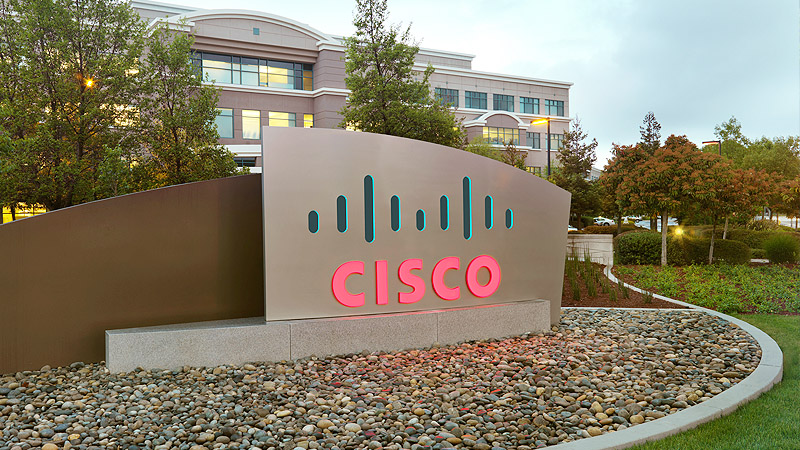JOHANNESBURG, South Africa, September 15, 2008 - Cisco today announced a R215m (USD 27m) investment in the Cisco Innovation Hub Technology Centre (CIHTC) in Pretoria. The centre, which will be become the home of ICT initiatives including an InnovationLab, a Global Talent Acquisition Programme, the Cisco Netversity, an Entrepreneur Institute and a Software Development Programme, is expected to collectively help drive a R1bn (USD 125m) effect on gross domestic product (GDP) over an initial five year period. The 3000 square metre CIHT Centre will be based at the Innovation Hub in Pretoria.
According to Mr Sipho Zikode, acting deputy director general, Enterprise and Industry Development Division of the Department of Trade and Industry (the dti), the Department supports these commendable initiatives. "We look forward to the positive contributions that they will make to South African industry, the ICT sector and the people of South Africa at large."
The centre, an advanced technology incubation centre aimed at fostering and developing local skills, intellectual property, entrepreneurship and solution development capabilities in the local ICT sector, is expected to have far reaching implications and to create a minimum of 200 direct and 800 indirect employment opportunities. This includes the development of intellectual property, the creation of design and network engineers, local software development, state of the art networking communications laboratories, access to business guidance as well as to provide a showcase for venture capital providers looking to fund solutions or businesses that may result from the Centre's operations.
Steve Midgley, managing director of Cisco South Africa says that emerging markets provide the biggest opportunity for social and economic transformation. "South Africa is on the brink of entering a broadband boom. This will change the way people live and work - giving the public sector and business the opportunity to gain significant efficiencies, to drive productivity enhancements, to achieve cost reductions and to gain access to new market segments within their existing business models. It will also create an enabling platform from which new business models can be created."
"Cisco is investing in this initiative now to ensure that when the broadband revolution really kicks off, South Africa has enough of the right kind of skills, solutions creation capabilities and intellectual property to leverage the many benefits broadband will bring to the country and help leap frog other economies," continued Midgley.
Supporting South Africa's development agenda
The CIHTC supports a number of South Africa's strategic agenda items such as employment creation, skills development and the fostering of local intellectual property. The Centre will comprise five initiatives:
InnovationLab
Operated by a team of consulting and development entrepreneurs, the InnovationLab has been running since the beginning of 2008 and focuses on developing technology solutions to solve common business challenges in the South African market. The Lab is currently developing solutions in education and crime prevention and it is anticipated that the aforementioned projects alone could result in local sales revenues of approximately R30m (USD 3.7m) and potential sales export opportunities of the same amount for entrepreneurs and their partners.
"InnovationLab is about creating virtual and physical environments for the demonstration of innovative business and social solutions for the emerging markets," says Joe Manchu, CEO of the InnovationLab. "We seek to harness the skills, knowledge and creative ability that exist in our country to position South Africa as a significant player in the production of intellectual property and globally competitive solutions. We are therefore privileged to collaborate with Cisco in this initiative. Cisco not only shares our vision, but is willing to invest in the development of these innovative solutions," he says.
Cisco Global Talent Acquisition Programme (GTAP)
With a growing shortage of skilled networking professionals in South Africa and around the world, GTAP has already absorbed the first group of students to create high level network engineers at a Cisco Certified Internetwork Expert (CCIE) level in an accelerated forum. Under normal market conditions, CCIE-level experience is created after 15 years' working experience. Cisco aims to condense this into approximately 18 months with the goal of creating a minimum of 120 CCIE-level network engineers over a five year period for the local market, at Cisco's cost. Quality will be assured by graduates having to sit the same examinations as their peers with 15 years experience.
Cisco Netversity
This skills development programme aims to create a minimum of 150 network design engineers for the local market, at Cisco's cost, through an experiential architecture and design training programme. This programme aims to facilitate the transfer of global networking expertise and knowledge to South Africa, thus enabling local youth to address the increasing demand for networking professionals in their market. These entrepreneurs will graduate with multiple Cisco and industry certifications; such as CCNA, CCNP and CCIE Written; and will partake in various leadership skills courses that will help prepare them for their future careers.
Cisco Entrepreneur Institute
Cisco aims to train 250 entrepreneurs through the institute, with the first intake of students graduating before the end of 2008. The institute is a non-profit endeavour that will teach entrepreneurial skills with a curriculum that covers various aspects such as starting, growing and tech-enabling a business. The curriculum draws on various sources from leading academic institutions such as Stanford and Cornell Universities. Graduates will gain practical entrepreneurial skills and will have access to tools, capabilities and social networks that will help enable a career as an entrepreneur. As the programme is web-based, Cisco anticipates a much larger community to be able to access and leverage the tools that are available.
Cisco GTAP Software Development Programme
Cisco will invest in software engineers to address the demand for software development skills in South Africa. Located at the CIHTC, the programme will focus on developing applications for Cisco's own business requirements. The applications will initially be implemented by Cisco internally to automate key processes, and the intent is to make key applications available to local software entrepreneurs for further development, and offer local software innovations for sale in the local or export markets.
As a Public Private Partnership (PPP), Cisco believes that the CIHTC is a step in the right direction to enable South Africans to harness technology to improve their standards of living. This has been endorsed by the minister for Public Service and Administration, Ms Geraldine Fraser-Moleketi who said in a recent speech at Govtech: "Given the current challenges faced in our emerging economy, it makes strategic and business sense for the public and private sectors to partner on issues of national importance and thereby seek to dramatically improve service delivery to the citizens of this country."
Continuing to invest in country transformation
In 2007, Cisco announced details of its Broad-Based Black Economic Empowerment (B-BBEE) initiative. At the time, the dti commended the structure of Cisco's initiative as a model implementation against its B-BBEE Codes of Good Practice. The sale of equity (share participation rights with a value equal to a 25.1% stake in Cisco) to a broad-based investment consortium included an external investment partner, a trust representing Cisco South Africa's black employees and an education trust. Cisco is pleased to announce the significant completion of all outstanding transactions relating to its B-BBEE deal.
Since announcing its empowerment deal, Cisco has made great strides in terms of all seven pillars of B-BBEE against the dti's Codes of Good Practice; which comprises direct empowerment (equity ownership and management representation) and indirect empowerment (employment equity, skills development, preferential procurement, enterprise development and corporate social investment).
A total of 70% of Cisco South Africa's senior managers and directors are from previously disadvantaged backgrounds, approximately 30% of its workforce is female and 60% of its entire workforce is made up of previously disadvantaged individuals. Affirmative procurement is currently at 65%, up from 30% a year ago.
From a corporate social investment perspective, Cisco's Networking Academy - a non-profit programme that develops critical networking skills - has trained over 1,000 skilled networking professionals in the last 12 months and a total of approximately 6,000 graduates since inception. It is estimated that South Africa faces a shortage of approximately 35,000 technology professionals. An 81% increase in the number of Cisco Networking Academies in South Africa in the 2008 fiscal year, with a value of R7,5m USD 1m),, brings Cisco's local investment in the Networking Academy to R45m (USD 5.6m) to date.
Recently Cisco announced an innovation to this programme through the creation of an alumni portal where graduates of the Academy can register their CVs and the market can post job vacancies for networking technical talent - in the past 6 weeks alone, some 100 jobs have been secured by Networking Academy graduates via the portal.
In terms of enterprise development, in the last 12 months Cisco has invested R5,5m (USD 0.7m) in the development of small and medium enterprises (SME), an increase of 300% over the previous year. This includes the business enablement of new SME resellers within the ICT sector, investment in skills development as well as partner talent development programmes.
"South Africa's ability to compete against developed economies will be directly linked to its ability to effectively utilise the power of broadband,' concludes Midgley. "Cisco is committed to supporting government's development agenda to increase South Africa's competitiveness and drive prosperity.
About the National Industrial Participation Programme
The National Industrial Participation Programme (NIPP) was adopted by the South African Government in 1997 as a tool that uses Government procurement to leverage investments, exports and technology development in the country. In terms of the NIPP guidelines, all Government and State-owned Enterprise (SOE) purchases or lease contracts for goods, equipment or services with an imported content equal to or exceeding US$10mn (or the equivalent thereof) are subject to an industrial participation obligation that is calculated at 30% of the imported content of the main purchase contract. In essence, this means that any seller/supplier who incurs an NIPP obligation is required to participate in the South African economy to the value of 30% of the imported content of the contract, as per the stipulations of the NIPP Operating Guidelines, and in compliance with the stated evaluation criteria. All NIPP projects/business proposals are based on the principles of mutual benefit and business sense.



